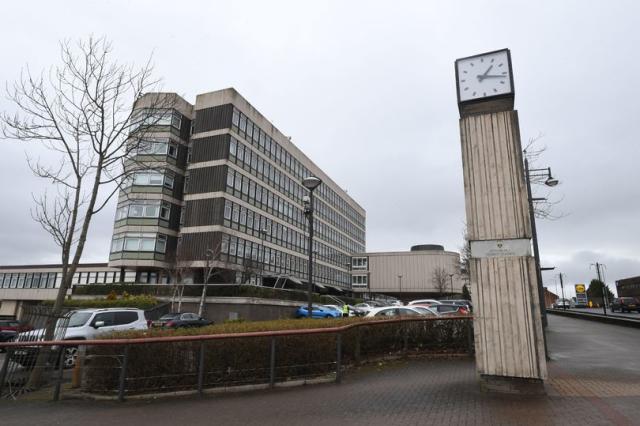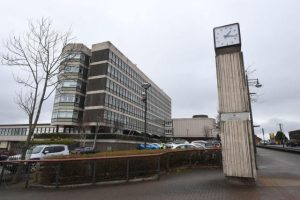
North Lanarkshire Council has recently released a series of statements detailing its ambitious plans for infrastructure, housing, and economic development. The council’s Strategic Capital Investment Programme (SCIP) for 2024/25 to 2028/29 outlines a £1.7 billion investment aimed at revitalizing towns, schools, housing, roads, and community facilities across the region. This marks the council’s largest-ever capital investment initiative.
Key Components of the Investment Programme
1. Town and Community Hubs:
The council plans to invest £347 million in developing new Town and Community Hubs in areas such as Abronhill, Glenboig, and Ravenscraig. These hubs are designed to serve as focal points for community engagement and service delivery.
2. Education and Leisure Facilities:
An allocation of £41 million is earmarked for improvements in schools, cultural spaces, and leisure facilities. This includes a strategic review of swimming pools to enhance community access and amenities.
3. Infrastructure Development:
The programme includes £95 million for City Deal infrastructure projects, notably the East Airdrie Link Road, which aims to improve connectivity and support economic growth. Additionally, £37 million is designated for enhancing roads, bridges, and flood defences to ensure safer and more resilient infrastructure.
4. Town Centre Regeneration:
A £45 million investment is planned for the regeneration of town centres, with a particular focus on redeveloping Cumbernauld. This initiative seeks to rejuvenate urban areas and stimulate local economies.
5. Environmental and Digital Upgrades:
The council has allocated £18 million for the redevelopment of Strathclyde Park Watersports Centre, incorporating renewable energy resources and modern facilities. Moreover, £23 million is set aside for digital and business system upgrades to enhance service delivery and operational efficiency.

6. Community Investment Fund:
A key element of the SCIP is the Community Investment Fund (CIF), which is supported by a portion of Council Tax increases. This fund enables the council to unlock additional resources for local regeneration projects, fostering community development and resilience.
Housing Initiatives
In addition to the SCIP, the council’s Housing Revenue Account (HRA) Capital Programme will see a further £829 million invested in housing over the next five years. This includes £539 million for mainstream housing improvements, focusing on modernisation and energy efficiency measures, and £290 million for the construction of new affordable homes. The council aims to deliver 6,000 new homes by 2035, expanding its housing supply programme by 1,000 homes. This expansion will be achieved through a combination of new builds, off-the-shelf purchases, and the Open Market Purchase Scheme. Approximately 1,581 new build homes have already been completed, with a record 335 homes delivered last year, marking the second-highest number of social rented completions in Scotland.
Economic Growth and Employment
The investment programme is designed to stimulate economic growth by attracting new businesses and creating job opportunities. Key actions include
Industrial Development: Remediating 1.6 hectares of derelict land for use by business and industry, and supporting the creation of new industrial units at Gartcosh Industrial Park, Condor Park at Eurocentral, Ravenscraig, and Link Park, Newhouse.
Infrastructure Projects: Progressing key infrastructure projects supported by the Glasgow City Region City Deal at Ravenscraig, Eurocentral, Orchard Farm, and the East Airdrie Link Road.
Skills Development: Delivering training through NL Academies to support young people into jobs in the built environment, digital, and care sectors.
Councillor Alex McVey, convener of the Enterprise and Fair Work Committee, emphasized the council’s commitment to supporting economic growth through the construction of new homes, roads, business and industrial premises, and reshaping town centres to provide modern, attractive facilities that meet local needs.
Council Budget and Tax Implications
In line with the investment programme, the council has set its budget for the 2025/26 financial year, announcing that there will be no cuts to services. To fund these initiatives, council tax rates have been adjusted, with a weekly increase of £2.53 for Band D households. Most households in North Lanarkshire are in Bands A and B, where council tax will increase by £1.69 and £1.97 per week, respectively. The first 2% of any increase in council tax will be allocated to the Community Investment Fund, escalating investment in community hubs, schools, leisure, infrastructure, and other facilities.
Conclusion
North Lanarkshire Council’s £1.7 billion investment programme represents a comprehensive approach to revitalizing the region’s infrastructure, housing, and economy. By focusing on community development, education, and sustainable growth, the council aims to create a modern and thriving environment for residents and businesses alike. These initiatives are expected to generate significant employment opportunities, attract new investments, and enhance the overall quality of life in North Lanarkshire.





